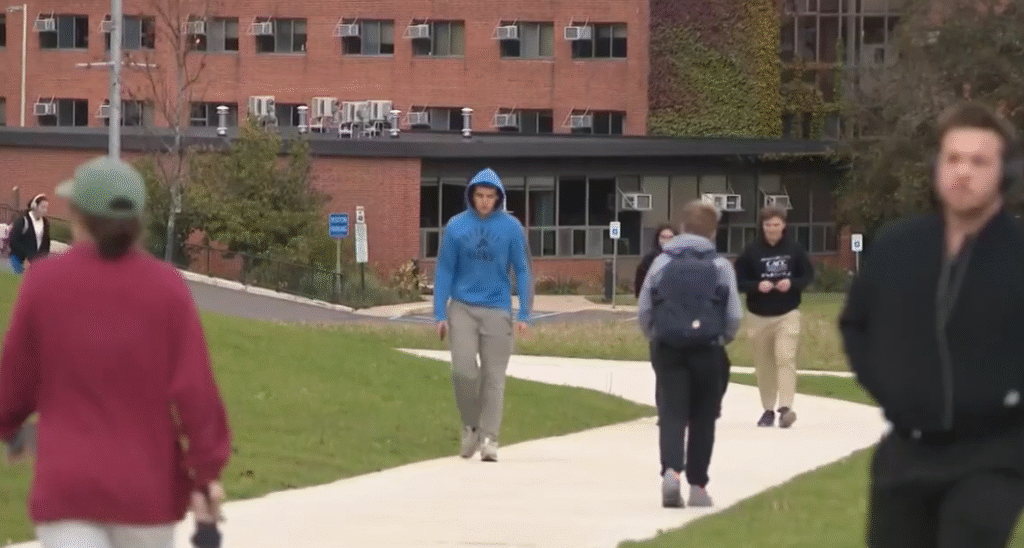With millions of student borrowers directly at stake, the question “Is Nelnet being sued?” carries a lot of weight. Nelnet, a well-known brand in the student loan servicing sector, is in fact the target of several lawsuits claiming that it failed to protect sensitive data, misled borrowers, and handled repayment calculations incorrectly. Technical malfunctions can have catastrophic financial repercussions, and the company’s legal troubles now remarkably mirror the larger loan servicing crisis.
In one of the most well-known cases, Stevens v. Nelnet Servicing, LLC, the company is accused of wildly overestimating the amount that borrowers would have to repay. A borrower under an income-driven repayment plan was instructed to pay more than $1,900 per month, even though her actual payment should have been closer to $580, according to the complaint. This disparity was a remarkably significant mistake that cost her a mortgage opportunity, not just a small administrative glitch. These kinds of events show how systemic poor management can subtly influence people’s futures.
Another case that garnered national attention involved a data breach that revealed 2.5 million borrowers’ personal information. According to court documents, this breach was especially damaging since Nelnet allegedly took too long to notify the impacted users. It wasn’t until their financial records were compromised that borrowers realized the delay had allowed identity theft and fraudulent tax filings. For a business tasked with protecting confidential data, the oversight demonstrated egregious carelessness.
| Company Name | Nelnet, Inc. |
|---|---|
| Headquarters | Lincoln, Nebraska, United States |
| Founded | 1996 |
| Industry | Financial Services – Student Loan Servicing and Education Finance |
| CEO | Jeff Noordhoek |
| Key Operations | Student loan servicing, education planning, payment processing, data solutions |
| Major Legal Issues | Class action lawsuits over miscalculated repayments, misleading borrower communications, and data breach affecting 2.5 million borrowers |
| Recent Settlements | $1.8 million payment to Massachusetts for income-driven repayment communication failures |
| Parent or Subsidiaries | Nelnet Servicing, Great Lakes Educational Loan Services |
| Official Reference | Domina Law Group – Nelnet Class Action Lawsuit |

A $1.8 million settlement with Nelnet was announced by Massachusetts regulators in January 2024, pointing to communication breakdowns with borrowers who were enrolled in income-driven repayment plans. Despite being relatively small in comparison to the size of the company, the settlement made it very evident that regulators would no longer allow loan servicers to operate without oversight. This result was especially advantageous for borrowers who wanted firms that oversee federally backed loans to be held more accountable.
The core of these legal disputes is Nelnet’s management of income-level-based repayment plans, particularly following the COVID-19 forbearance period. Service providers like Nelnet faced a significant recalibration task when repayments resumed. Many borrowers expected affordability when they signed up for plans like SAVE or PAYE. However, some discovered that their monthly payments were strangely inflated on their statements. These errors not only caused frustration, but they also severely damaged confidence in a system already beset by confusion and red tape.
The lead in defending borrowers has been taken by law firms like Domina Law Group. Their filings highlight particularly concerning error patterns, such as incorrect renewal application processing and refusal to accept proof of eligibility. In addition to stating that “thousands of people were impacted by these systematic mistakes,” lawyer David Domina underlined that such actions demonstrate a wider disregard for borrower welfare. His comments are in line with a growing number of borrowers who believe they have no way to stop corporate inefficiencies.
The situation is very complicated. Similar to other significant loan servicers, Nelnet is governed by federal contracts. This implies that its shortcomings affect not only specific people but also the entire student loan system. Every misreported credit line, every delayed correction, and every miscalculated payment constitute a betrayal of the public’s confidence. The fact that other service providers, like Navient, have been subject to comparable scrutiny indicates that the problem isn’t unique and has its roots in the workings of loan administration.
One cannot overstate the social impact of these lawsuits. In the United States, student loan debt has grown to become one of the biggest types of personal debt, second only to home mortgages. When service providers like Nelnet fail, younger generations who are already dealing with economic uncertainty are disproportionately impacted. Highly adaptable options like income-driven repayment plans were created to increase access to higher education, but when poor management gets in the way, their potential advantages are diminished.
This wave of litigation has the potential to spur reform, according to observers. Transparency and borrower communication need to be significantly enhanced, according to regulators and consumer advocates. They are demanding real-time auditing of servicer performance and more stringent compliance regulations. Even though these actions are complicated, they are incredibly successful in regaining public trust.
The lawsuits have drawn interest from outside the financial industry as well. Senator Elizabeth Warren and other politicians and celebrities who support student loan forgiveness have openly chastised servicers for their carelessness. Because of their involvement, the issue has gained more attention, entered the mainstream, and pressure has been applied for accountability. This combination of litigation, activism, and policy has produced a particularly novel kind of public oversight that compels businesses to answer not only in courtrooms but also in the court of public opinion.
